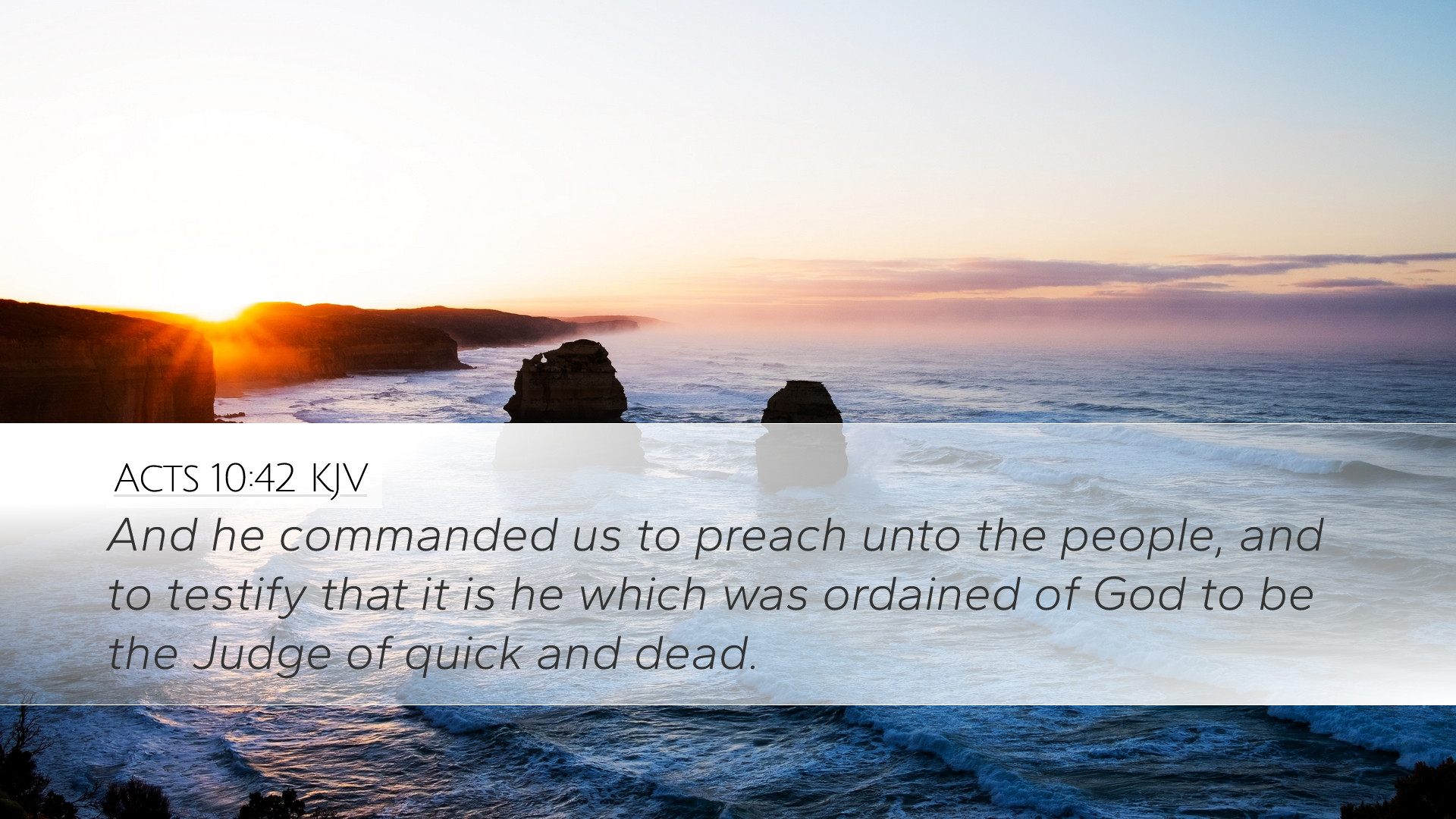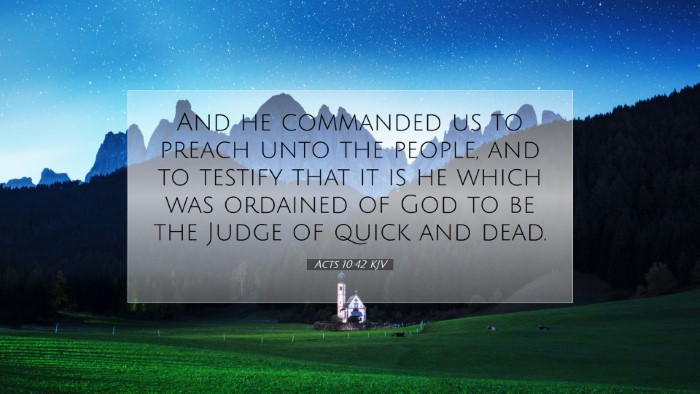Old Testament
Genesis Exodus Leviticus Numbers Deuteronomy Joshua Judges Ruth 1 Samuel 2 Samuel 1 Kings 2 Kings 1 Chronicles 2 Chronicles Ezra Nehemiah Esther Job Psalms Proverbs Ecclesiastes Song of Solomon Isaiah Jeremiah Lamentations Ezekiel Daniel Hosea Joel Amos Obadiah Jonah Micah Nahum Habakkuk Zephaniah Haggai Zechariah MalachiVerse
Acts 10:1 Acts 10:2 Acts 10:3 Acts 10:4 Acts 10:5 Acts 10:6 Acts 10:7 Acts 10:8 Acts 10:9 Acts 10:10 Acts 10:11 Acts 10:12 Acts 10:13 Acts 10:14 Acts 10:15 Acts 10:16 Acts 10:17 Acts 10:18 Acts 10:19 Acts 10:20 Acts 10:21 Acts 10:22 Acts 10:23 Acts 10:24 Acts 10:25 Acts 10:26 Acts 10:27 Acts 10:28 Acts 10:29 Acts 10:30 Acts 10:31 Acts 10:32 Acts 10:33 Acts 10:34 Acts 10:35 Acts 10:36 Acts 10:37 Acts 10:38 Acts 10:39 Acts 10:40 Acts 10:41 Acts 10:42 Acts 10:43 Acts 10:44 Acts 10:45 Acts 10:46 Acts 10:47 Acts 10:48

